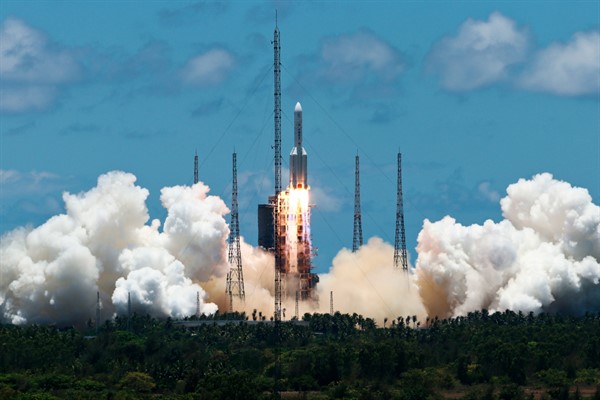On July 23, the Tianwen-1 spacecraft lifted off from the Wenchang Satellite Launch Center on Hainan Island, in southern China, bound for Mars. If all goes according to plan, the probe is scheduled to reach the red planet in February 2021. That would make China just the third country in history to land on Mars, after the United States and the Soviet Union. While Tianwen-1 is focused on scientific exploration, the decision for any country to invest in such an ambitious endeavor is always deeply political. And while analysts often emphasize the security motives driving China’s pursuit of advanced space technologies, its mission to Mars highlights the importance of international prestige in Chinese foreign policy.
In the current period of heightened geopolitical tension between Washington and Beijing, it is easy for analysts to frame any maneuver by China in outer space as driven by a security-maximizing logic of realpolitik. Space technologies, by their very nature, are dual-use, meaning they can serve military functions even if they are ostensibly for purely civilian purposes. Moreover, China does not have an independent civilian space program like the United States; even China’s human spaceflight program is headed by officers of the People’s Liberation Army. Furthermore, the line between military and civilian technologies is becoming increasingly blurred as a result of China’s “military-civil fusion” policy, an effort to spur commercial and military technological innovation by removing barriers between China’s private sector and defense industry.
Yet many of China’s most expensive and technologically complex missions, from human spaceflight to Tianwen-1, are poorly explained by security concerns, and they hardly represent an efficient path to increasing Chinese hard power. Human spaceflight, for example, is extremely expensive and offers limited military utility. During the Cold War, the United States and the Soviet Union abandoned their plans for using humans for reconnaissance in space, as they had far more effective and inexpensive alternatives, like observation satellites.

